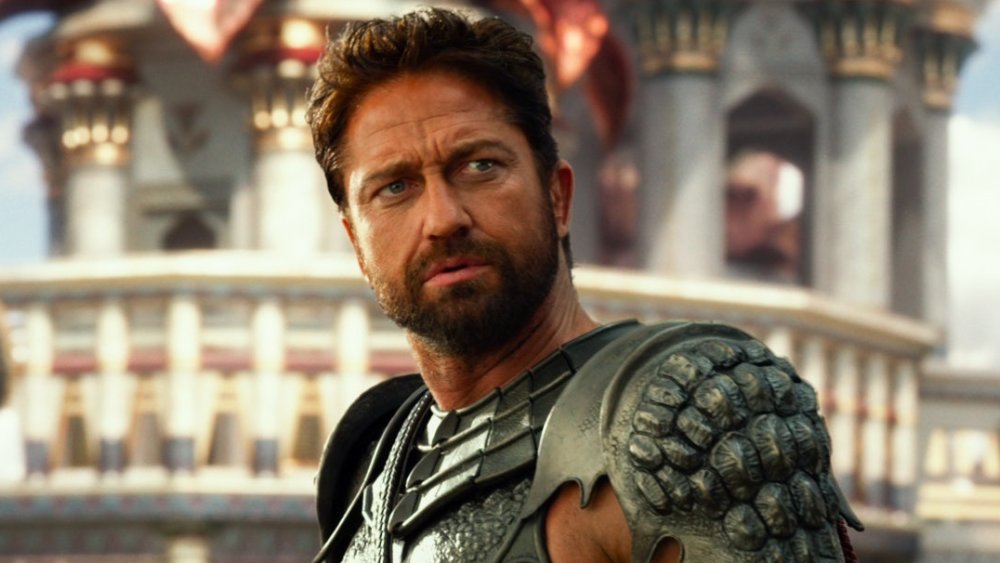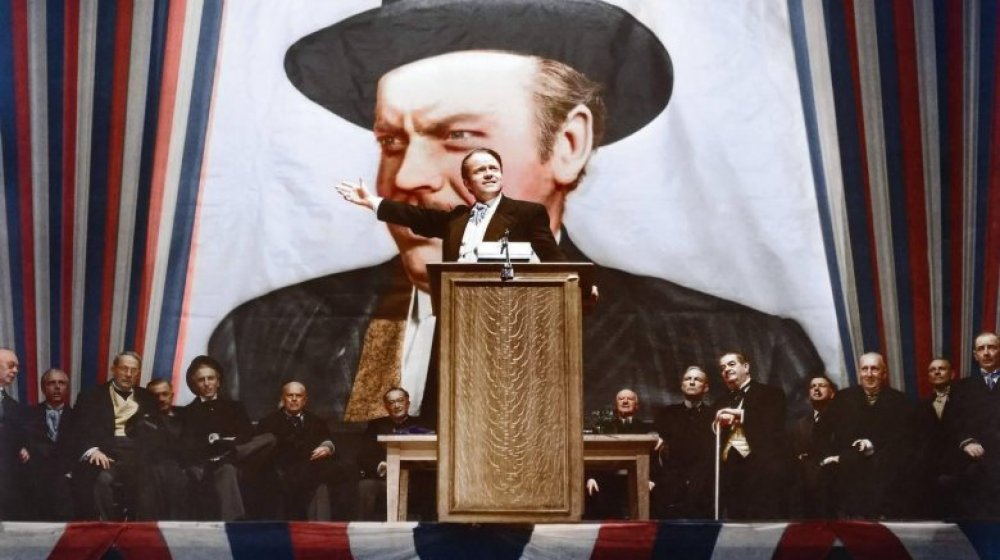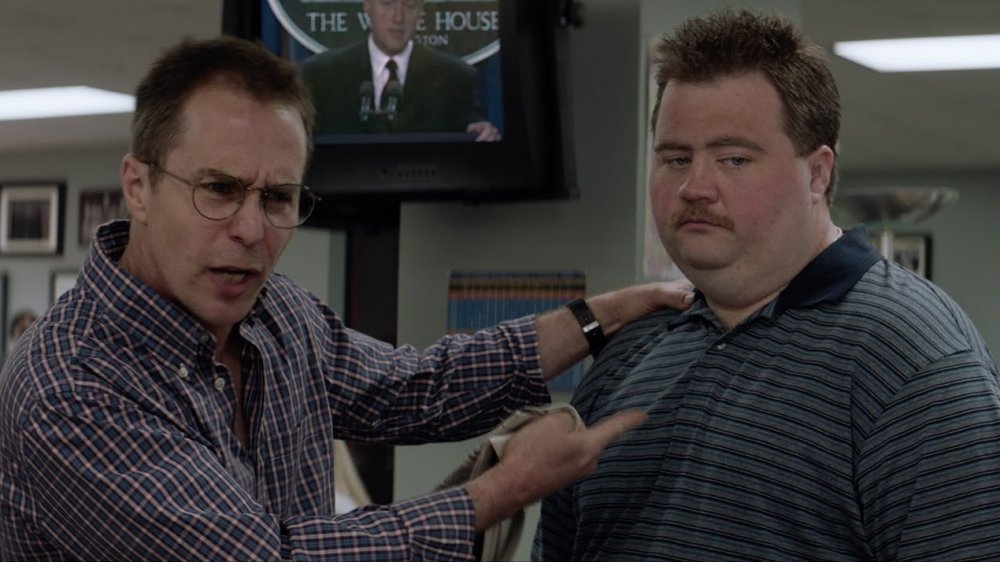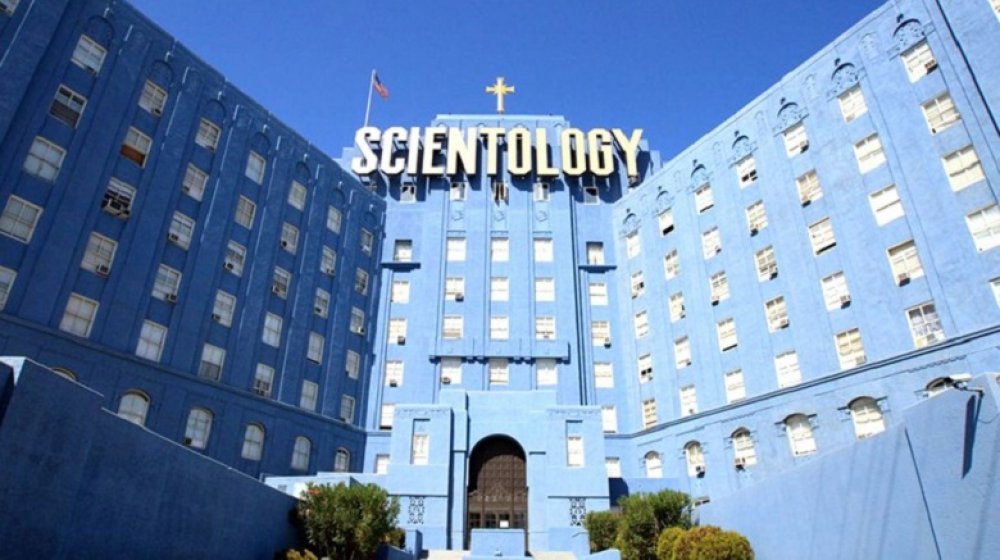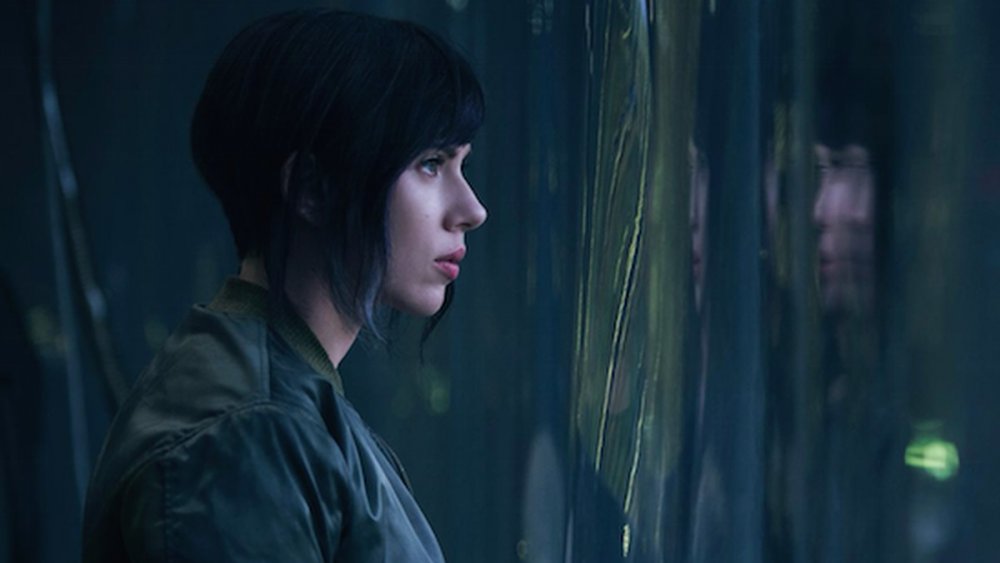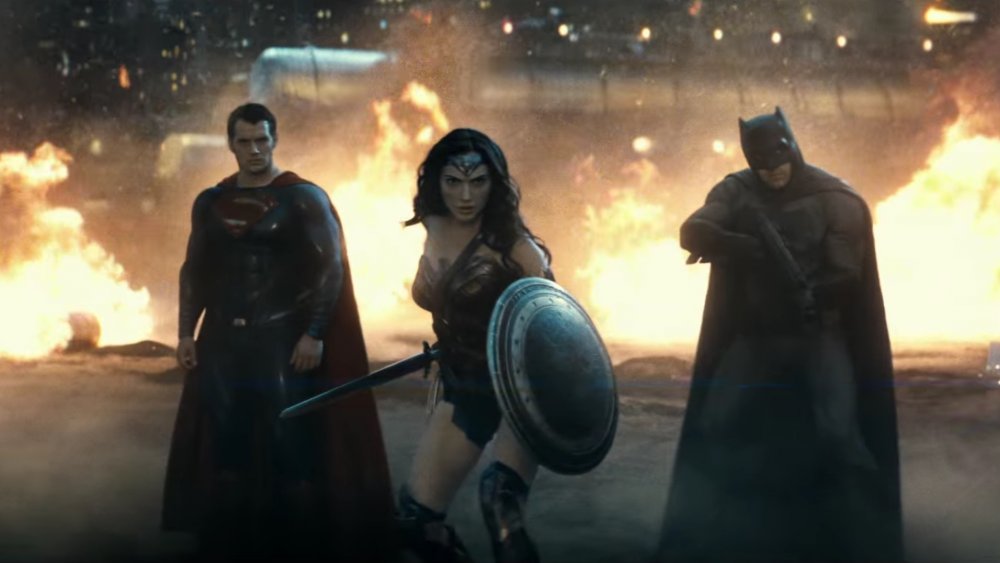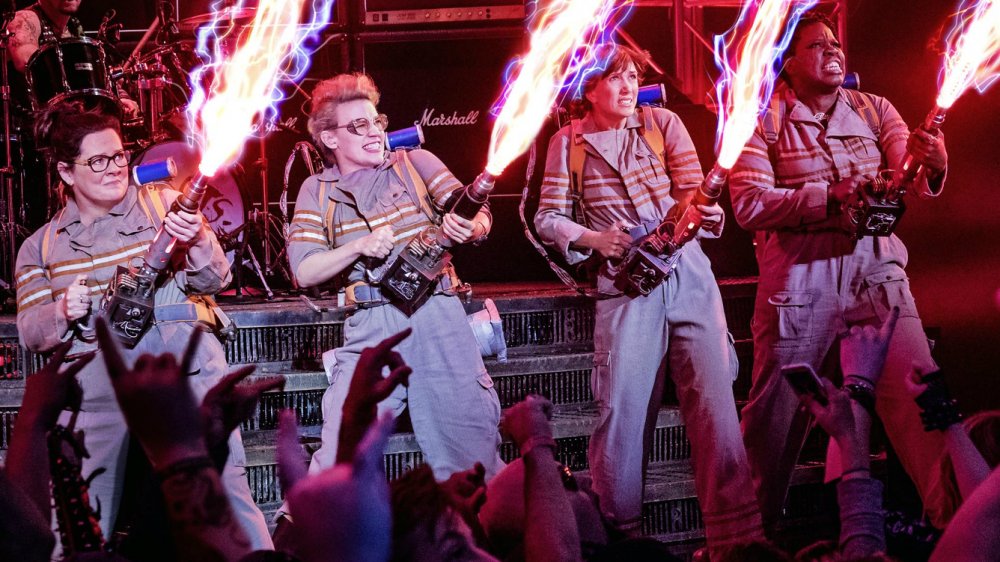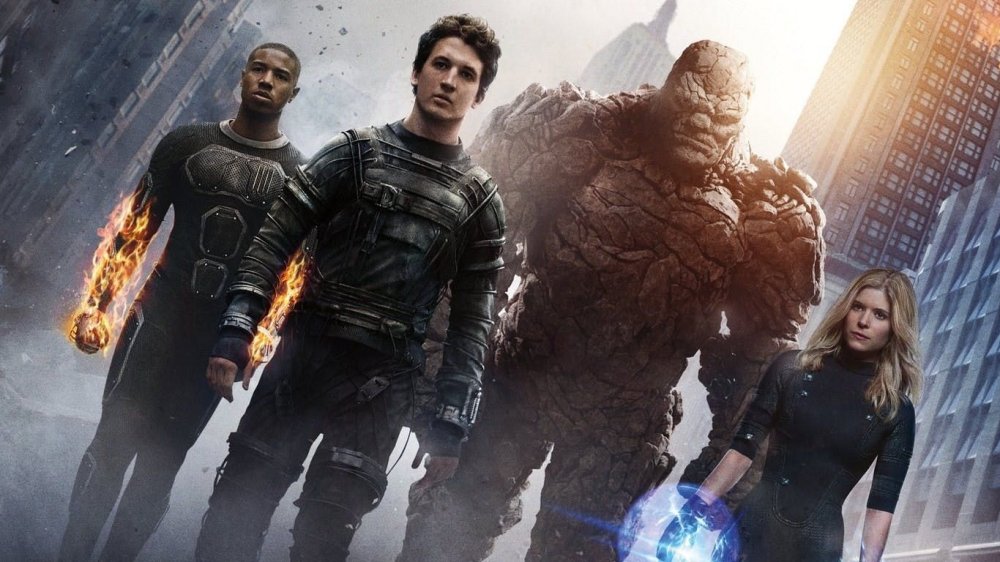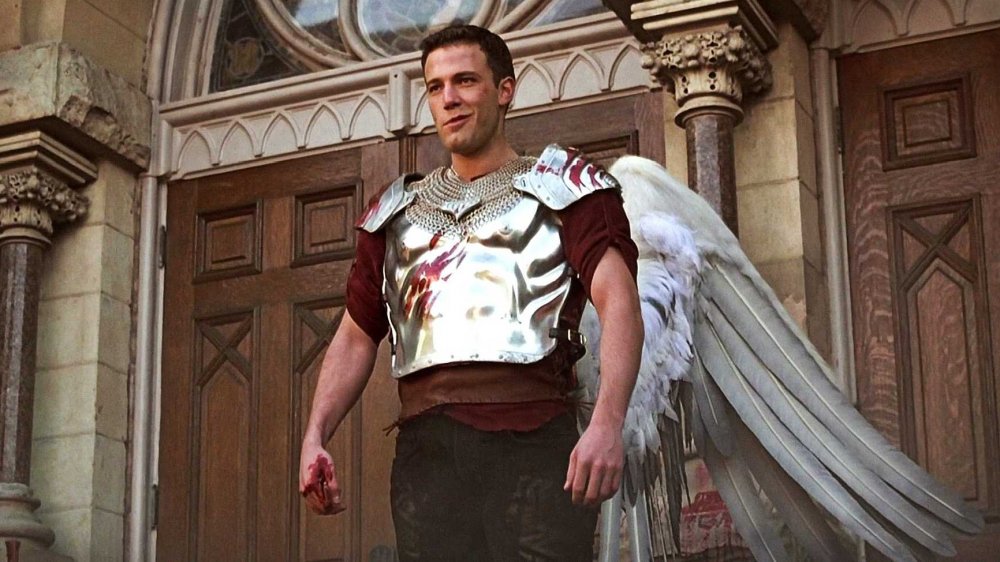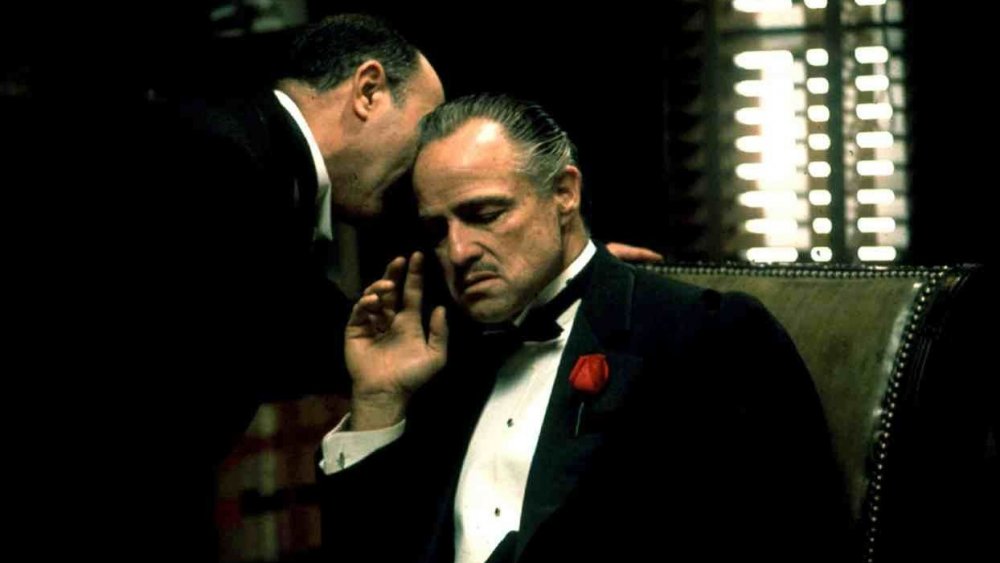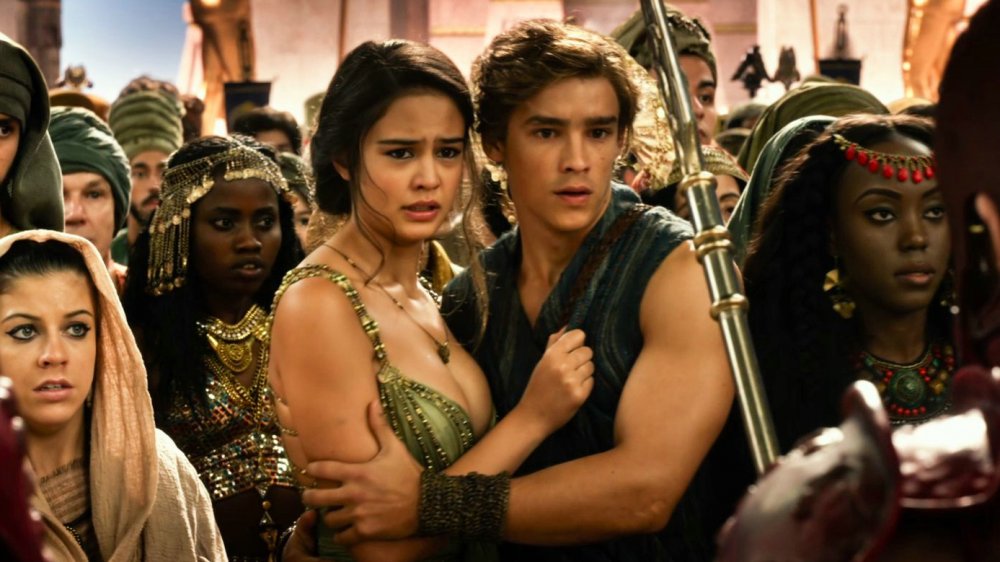Movies That Angered People Before They Even Came Out
In these divided times, there are two things that people can agree upon. First, movies are fun to talk about. And second, being angry at a movie is fun sometimes. However, it's also easy to get angry about movies we haven't seen, for better or for worse. A simple trailer, movie poster, or tidbit of behind-the-scenes info can provoke outrage among fans or critics. Perhaps it's because they're worried about a bad production decision or casting choice. Other times, people just have super low expectations, or perhaps they're projecting their own biases onto a film. Objections can be religious, political, or even the occasional personal feud gone public. Whatever the reason, this negative pre-release furor is often frustrating, but it's never boring.
So today, we're taking a look at the movies that ticked everybody off before they even hit theaters. And sure, some are classic movies while others are massive bombs. But still, they all have that one thing in common — they angered a whole lot of people before they even came out.
Citizen Kane is the granddaddy of annoying the wrong people
Citizen Kane is the granddaddy of all movies that angered people prior to release. Sure, today, it's often listed as one of the best films — if not the best film — ever made. When it hit theaters, however, it was a financial failure. That's because before the movie was even released, filmmaker Orson Welles had angered a dangerous foe, a newspaper magnate named William Randolph Hearst. And like many before him, Welles learned the risks of fighting opponents who buy ink by the barrel.
The film's titular character of Charles Foster Kane was a composite of several people, including Hearst. The biographical similarities between Kane and Hearst were striking, but the grievance went beyond that. A long held rumor in Hollywood is that "rosebud" — the key phrase in the movie — referenced intimate information about Hearst's mistress. In other words, there were a whole lot of parallels between the two businessmen, and when word got out at a press screening that the movie was based on Hearst and portrayed him unfavorably, a press war was born.
Welles and his forthcoming movie were attacked from all fronts by the Hearst media empire. Mentions of the film were banned from any Hearst publication, and Hearst's lackeys tried to smear Welles and undermine his credibility. The studio and exhibitors were threatened with lawsuits, and the planned premiere at Radio City Music Hall was cancelled after the venue was threatened with a total press blackout.
In the long run, Welles won. These days, Hearst is remembered more for his temper tantrum over the film than his time running newspapers. In the short term, though, Hearst won. The movie flopped and permanently tanked Welles' career in America at age 26. It wasn't until years later that people truly realized Welles made something special.
Richard Jewell angered people with a major inaccuracy
Clint Eastwood's Richard Jewell tells the story of the titular security guard who saved many lives during the 1996 Summer Olympics in Atlanta by discovering a bomb, only to be falsely accused of plotting the whole thing. It's a story of trial-by-media and a cautionary tale. Unfortunately, the filmmakers didn't learn that lesson and earned some ire before the movie's release because of an outright fabrication.
Central to the controversy was the depiction of Kathy Scruggs, the journalist for the The Atlanta Journal-Constitution who broke the story about Jewell being an FBI suspect. Her article, with the lede saying that Jewell matched the description of a lone bomber, was patient zero for the media firestorm. The movie implies that Scruggs slept with an FBI agent for tips, but there's no evidence that this occurred. Her friends say it never would've happened, and her colleagues were quick to point out that Scruggs — who died in 2001 — wasn't around to defend herself. The film was also accused of perpetuating the stereotype that female reporters use their sexuality to get access.
As a result, the AJC sent a letter to Warner Bros. demanding that they release a statement "publicly acknowledging that some events were imagined for dramatic purposes and artistic license" and adding a disclaimer before the film. This letter, at least publicly, went unanswered. Olivia Wilde, who played Scruggs, tried to defend the role, but the damage was already done. The film bombed at the box office (the worst return for an Eastwood movie in decades), and this controversy didn't help one bit.
Going Clear made serious enemies before it even came out
Going Clear, based on the book of the same name, was Alex Gibney's look at the inner workings of Scientology. It painted an ugly picture, full of lies, abuse, and manipulation. No matter the content, though, making a documentary about Scientology meant that Gibney picked a fight with a group famous for getting angry.
The Church of Scientology is famously image conscious and litigious. And in response to Gibney's film, the Church took out an ad in both The New York Times and LA Times denouncing the movie. HBO and Gibney responded positively to this, stating that they couldn't have asked for better publicity.
However, they responded less positively to alleged threats against participants in the movie, including people being followed. A private detective was even convicted of trying to hack the emails of several interviewees. The church also emailed almost everyone writing a review of the movie to tell them it was filled with lies. In the weeks leading up to Oscar voting, the Church made their own anti-Gibney film and kept reaching out to award voters. Granted, Going Clear is a fantastic documentary, but getting it released had to be majorly stressful for Gibney and his crew.
Ghost in the Shell was accused of whitewashing
The original Ghost in the Shell was a bona fide classic, so naturally, Hollywood had been heading towards a live-action adaptation for some time. After years of work, one was finally released in 2017. But instead of wowing fans of the original, it's now remembered as one of Hollywood's worst anime adaptations, largely thanks to a nasty case of whitewashing.
Scarlett Johansson was cast in the lead role of the Major. However, her character was depicted as Japanese in the source material. As such, a lot of people were upset that Johansson was basically taking a role that could've gone to an Asian actress. Nevertheless, those close to the production and the property defended the choice. Mamoru Oshii, director of the 1995 anime film, said he had no problem with the casting. He noted that, "The Major is a cyborg, and her physical form is an entirely assumed one."
Johansson herself said, "I certainly would never presume to play another race of a person. Diversity is important in Hollywood, and I would never want to feel like I was playing a character that was offensive." And producer Steven Paul also noted that the movie doesn't take place in Japan and has an "international" setting, and he predicted that everyone would be happy with the movie. This was optimistic. Ghost in the Shell was one of the biggest flops of 2017, proving that bad buzz can really hurt a film at the box office, even with one featuring an A-list actress.
Fans were unhappy with the casting in Batman v Superman
The DC Extended Universe has been something of a mixed bag among critics and audiences, and Batman v Superman: Dawn of Justice was one of the earliest victims of fan hatred. In fact, two people received the brunt of the backlash before the movie even had a trailer, much less a release date. Yeah, we're talking about Ben Affleck and Gal Gadot, who were cast as Batman and Wonder Woman, respectively.
Superhero fans, a fickle bunch to begin with, didn't take kindly to this, still holding the abysmal Daredevil over Affleck's head. Never mind that Daredevil came out over a decade earlier, and Affleck had regrets about it. Never mind that Affleck didn't write or direct that movie. And never mind that Affleck spent the years after that working on acclaimed crime dramas, including The Town and Gone Girl. Petitions popped up in droves demanding that Affleck get fired.
Gal Gadot was also attacked for having — to put it politely — a smaller frame than certain pockets of fans thought was appropriate. This was despite her being a literal beauty queen, having been named Miss Israel in 2004, and having spent two years as a fitness instructor in the Israeli Defense Force. Of course, all of this ended up being meaningless. Even though Batman v Superman was a critical failure, most singled out Affleck and Gadot as worthy of praise for their performances. Plus, Gadot's Wonder Woman film became one of the most beloved movies in the DC Extended Universe and one of the best superhero movies of all time.
The Ghosterbusters reboot was trolled before it even came out
The decades-long attempt to make a Ghostbusters III came to a halt with the death of Harold Ramis. It was then entirely rebooted by Sony, with Paul Feig at the helm and an all-female core cast. However, from the moment the cast was announced in 2015, a fair amount of people got angry and stayed angry. Ostensibly, many fans were upset with the movie having no storyline connection to the original, but much of the ire was outright misogynistic.
The movie's IMDb page was spammed with one-star reviews, the majority coming from men between the ages of 18 and 44. The first trailer faced a torrent of dislikes on YouTube, and Feig had to directly tell people on Twitter to leave his cast alone. The movie made back its budget at the box office, but so much had been spent on marketing that it ended up being something of a bomb. It's hard to say how much of that was the backlash, rising production costs, or the quality of the movie itself, but the end result was the same.
Josh Trank hated his own Fantastic Four movie
The 2015 Fantastic Four film is remembered poorly, if it's remembered at all. It was considered the nadir of the "gritty superhero movie" movement and one of the very worst Marvel movies. Before it even came out, though, the movie angered maybe the least likely party of all — the director.
Josh Trank became an in-demand filmmaker after his hit movie Chronicle in 2012, and he eventually landed on a reboot of the Fantastic Four. But before the movie was even released, stories of on-set conflict emerged and painted an ugly picture. Fingers were pointed at both Trank for running a less-than-tight ship and Fox for making the movie "for the wrong reasons." Combine this with the movie taking a darker tone on a light subject, and critics were almost poised to hate it.
Shortly before the movie was released, Trank tweeted and deleted a message that read, "A year ago, I had a fantastic version of this. And it would have received great reviews. You'll probably never see it. That's the reality, though." Toby Kebbel, who played Doctor Doom, confirmed this in 2016. He stated that Trank "did cut a great film that you'll never see. That is a shame. A much darker version, and you'll never see it."
The studio was furious at the perceived blame-shifting. By this point, Trank had also been kicked off — or, if you ask him, willingly left — a Star Wars spinoff film. Thanks to all this combined, his fledgling career took a massive hit. In November 2019, Trank reviewed Fantastic Four on Letterboxd. He acknowledged the movie wasn't that bad but wasn't great. He also stated that, "What I can tell is there are TWO different movies in one movie competing to be that movie. Is there a #releasethetrankcut? Doesn't matter."
Dogma drew ire from the Catholic League
Kevin Smith was a devoted mass-attending Catholic when he wrote Dogma. The movie was his way of coming to grips with questions about his faith, and ultimately, Dogma takes a positive view of religion. Even though it questions the teachings of the Catholic Church, the movie asserts that asking questions doesn't mean one has less faith.
Of course, nobody knew this before the film was released. Many just saw the Clerks guy making a movie about religion and assumed the worst. Specifically, the Catholic League became furious the moment it was announced. Its members saw the film as an attempt to persecute and mock Catholics, and they took to the streets to protest it.
Early protests caused enough of a stir that Miramax — who originally held the rights — sold off the movie to Lionsgate. This was just the beginning, though. The Catholic League organized protests around the country, though most were smaller than anticipated. They handed out flyers indicating that the movie mocked their beliefs and endorsed vulgarity. Smith started posting his hate mail on the Dogma website, and he even received death threats.
Smith's response to all of this was, "If Catholicism is the car, I bought the car years ago. I think I'm allowed to kick the tires and check under the hood." Ultimately, the protests only helped the movie, which was a box office success.
The mob organized against The Godfather
Lots of movies anger fans or critics before they hit theaters. But The Godfather, one of the most popular and acclaimed movies ever, found an even more dangerous enemy: the actual, real-life mob. Protests against the movie were organized by the Italian-American Civil Rights League (IACRL). The group claimed to fight anti-Italian sentiment, particularly in the media. But in reality, the IACRL was a front for the Colombo crime family, and they used it as a way to rally average people to cover up their own activities. In particular, they wanted people to stop using the word "mafia," claiming it was just a word made up by the authorities to stigmatize Italians.
While IACRL was protesting against the movie, actual mobsters waged a harassment campaign against Paramount. Equipment kept getting stolen, car windows got smashed, and people involved in the movie received threatening phone calls. This all came to an end after the studio met with Joe Colombo of his namesake crime family. He agreed to call off the harassment if Paramount agreed to strike the words "mafia" and "la casa nostra" from the script.
The Gods of Egypt angered people with its bad casting decisions
Directed by Alex Proyas, Gods of Egypt found ancient deities battling it out for supremacy, but it wasn't exactly a hit. The movie was decimated by Rotten Tomatoes, but before it even landed in theaters, it attracted negative attention for its cast. Sure, they were all talented enough, but they were mostly white actors playing African characters.
Promotional material for the movie dropped in November 2015, including the trailer and posters. All of these indicated front and center that Egyptian gods would be played by Caucasian actors, and the backlash began in earnest. However, the filmmakers took an unusual step in response to this anger: they apologized. Both Lionsgate and Proyas issued statements apologizing for the casting decisions. Lionsgate said they failed to live up to their own expectations and promised to do better in the future. Proyas acknowledged that casting a movie is complicated, but they still should've done a better job.
Reactions to this apology were mixed, with some people giving them credit for owning up and others accusing them of "trying to have it both ways" by releasing the movie anyway. Ultimately, the movie bombed when it was released five months later, so the apology didn't matter as far as the box office went.
Red Shoes and the fat-shaming ads
Red Shoes and the Seven Dwarfs was an animated retelling of the Snow White story by South Korean studio Locus Creative Studios. Chloë Grace Moretz voiced Snow White, and the cast included other familiar names such as Patrick Warburton and Gina Gershon. However, most people stateside don't know much about the movie outside the anger its marketing material generated on Cannes weekend.
Advertisements for the film were posted after the festival, and journalists started sharing photos on Twitter. One such ad asked, "What if Snow White was no longer beautiful and seven dwarfs not so short?" The posters juxtaposed a tall and thin woman against the same woman ... only now she was shorter and rounder. Many read this as fat shaming, and when the advertising was brought to the attention of Moretz, she expressed her displeasure. Fortunately, the ad campaign was cancelled, the studio apologized, and the movie faded into obscurity.
